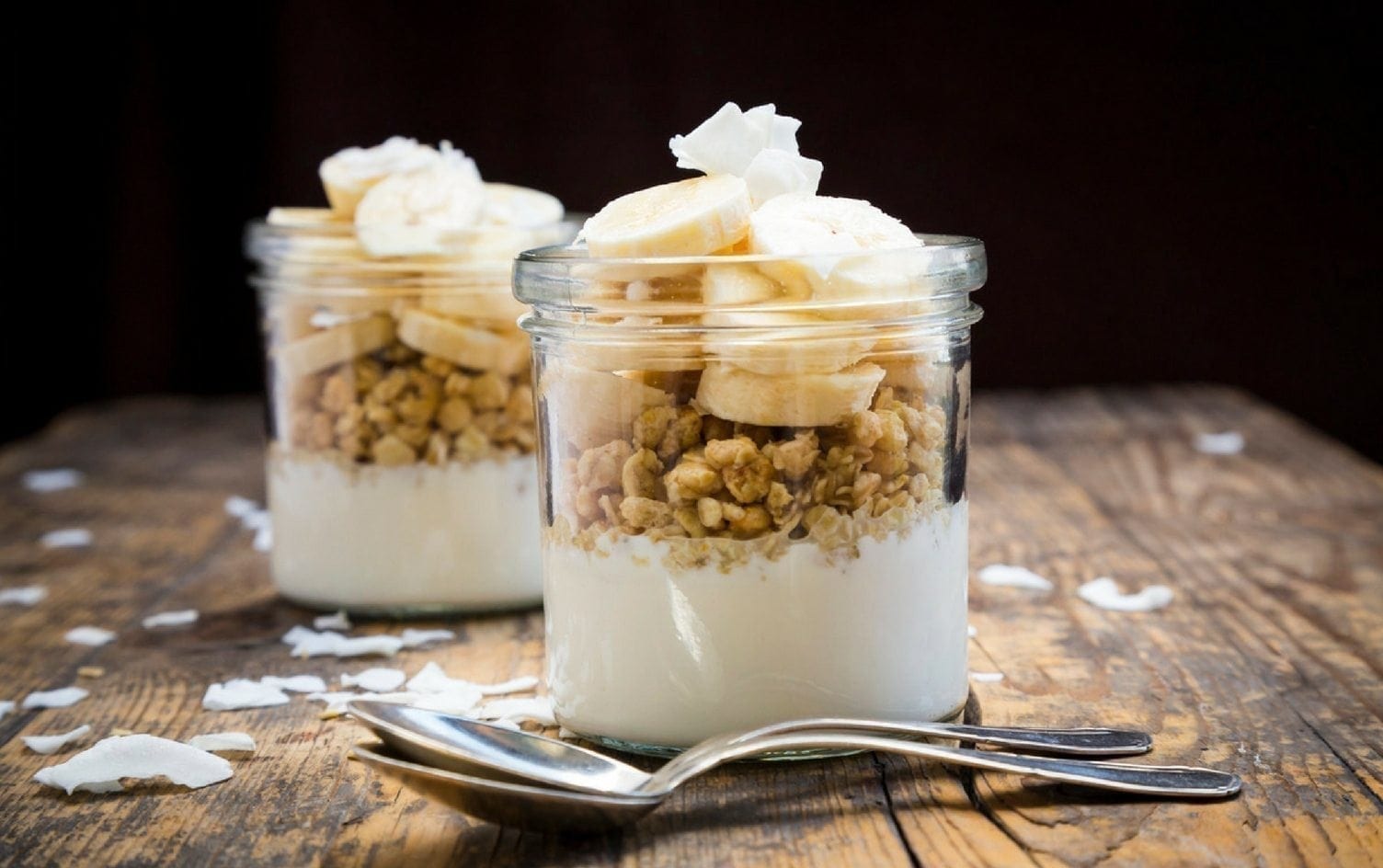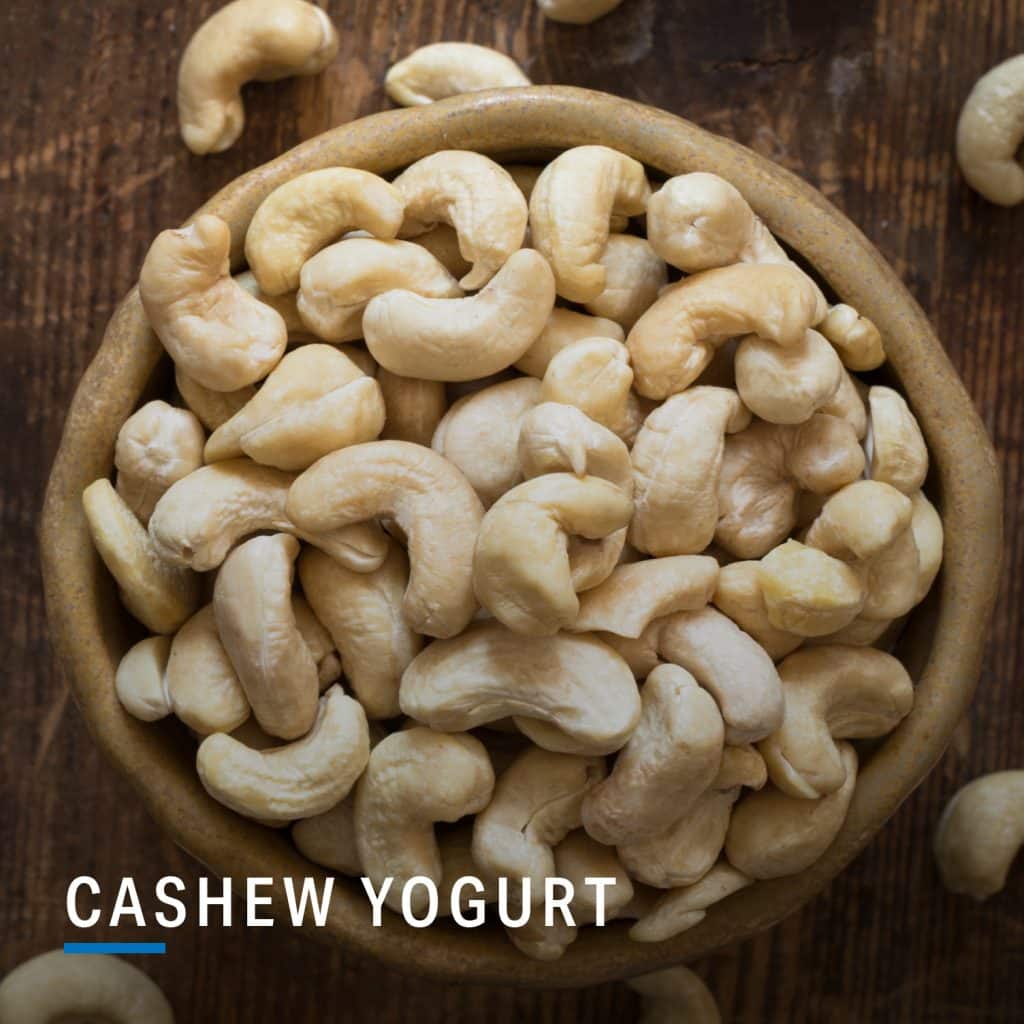What’s the deal with nut milk yogurt? (Sorry, we refuse to call it nut “myllk.”) These creamy concoctions made with cashew, almond, soy or coconut can be found everywhere — and in nearly as many flavors as old-fashioned dairy yogurt.
Vegans rave about the dreamy texture of “cashewgurt” and the natural sweetness of versions made from coconut. Plus, the alt yogurts contain the same healthy probiotic cultures as those found in yogurt made with cow’s milk — yet, as plant-based products, have a much lower carbon footprint.
So is it time for lactose tolerant people to get on board? Here’s an overview and our (very subjective) ranking from favorite to least favorite, based on everything from nutrition basics to texture and flavor.
The fruit-flavored sweetened versions actually taste good, and while they contain 10–12 grams of sugar, that’s still less than most other yogurts — whether dairy or dairy alternative. The minor nutty aftertaste might be a turnoff for some, yet will hardly be noticed by others. Most taste-testers agree the creamy texture is pleasant.
Unsweetened cashew yogurt versions have just 1 gram of sugar per cup. And yes, “cashewgurt” has built its reputation on its low-sugar content. But let’s get real: The putty-colored plain version tastes like watery cashews blended with cardboard, so few of us will ever reap the benefits.
Cashewgurts from the Forager Project brand are likely in a store near you; after launching in 2016, they’re now widely distributed. (Hint: Try the blueberry.) With barely any calcium and just 3 grams of protein per container (dairy yogurt may be double or triple that amount), its main draw is the lower sugar content and dairy alternative status.
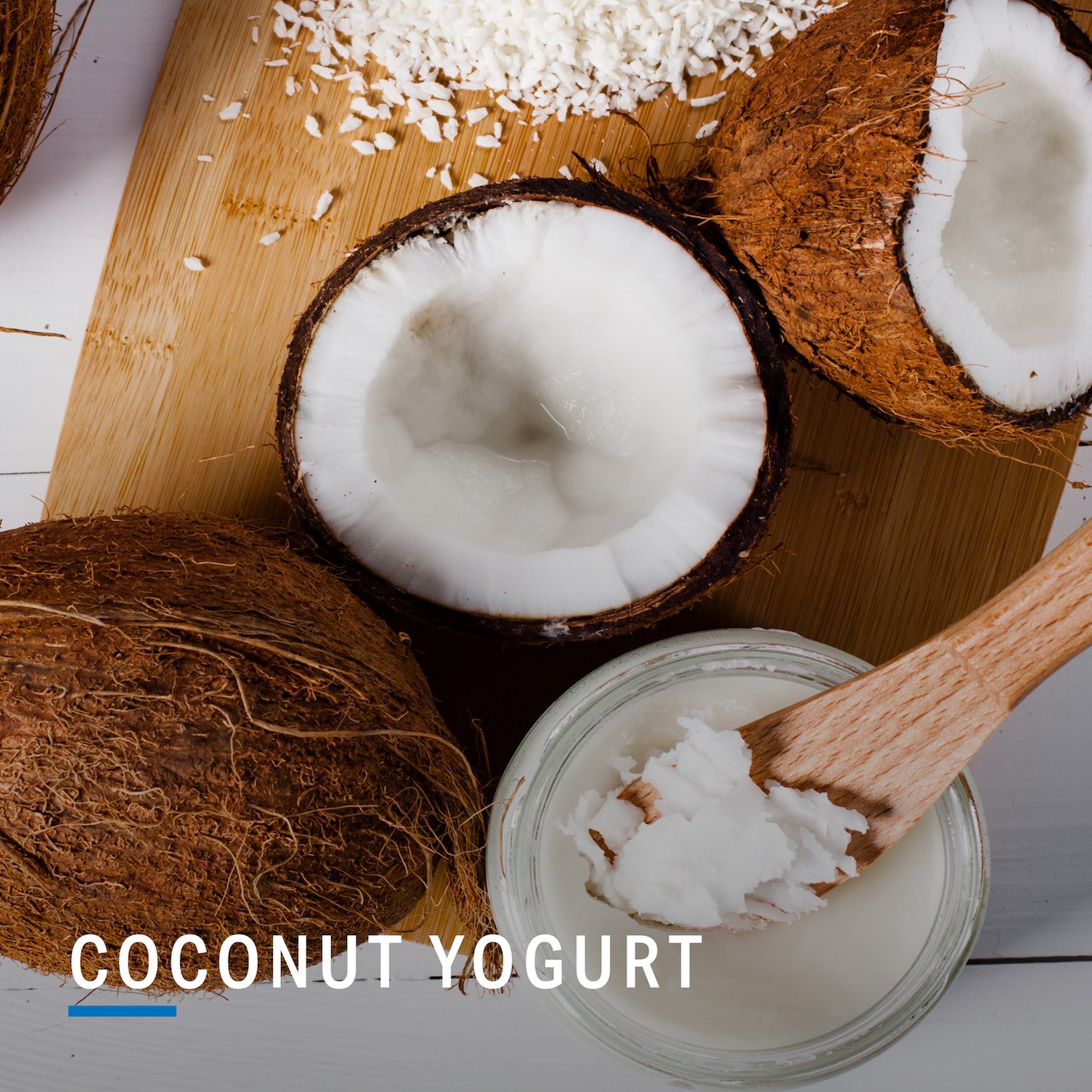
Using coconut milk as a base creates a creamy yogurt that mimics the real thing fairly well. That said, when it comes to nutrition, you’ll want to read the label. Whereas one widely available coconut-based brand, So Delicious, tends to have 4–7 grams of fat per container (5.3 ounces), a similar 6-ounce serving of Brooklyn-based cult brand Anita’s coconut yogurt contains 21 grams of fat. Sweetened versions definitely taste best and usually contain between 15–20 grams of sugar, similar to dairy yogurt. If you’re counting on calcium, check the label: So Delicious is fortified with calcium and vitamin D, but not all brands are. There’s little to no protein in coconut milk yogurt, but you can always supplement by adding flaxseeds or protein powders as mix-ins.
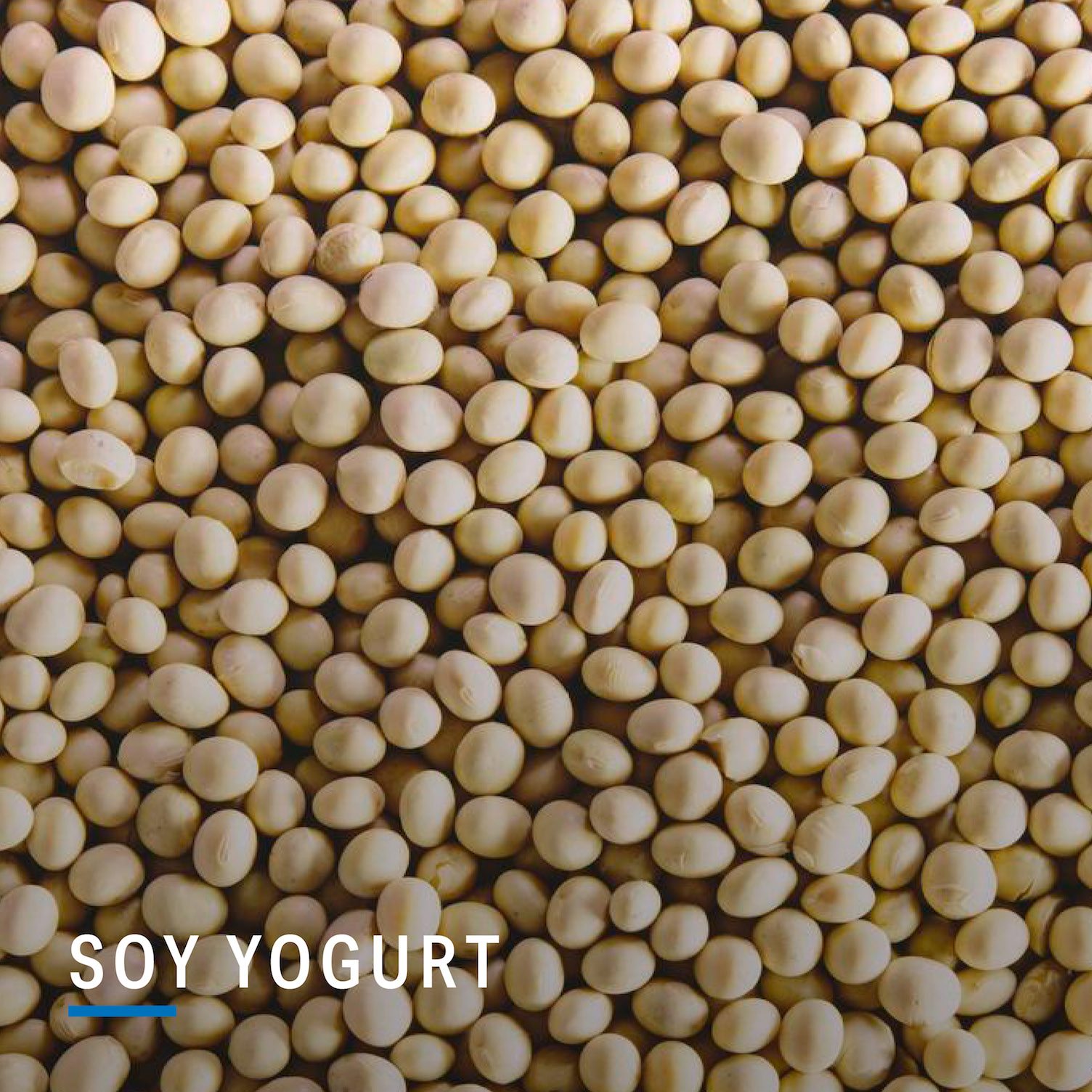
When transformed into an alternative yogurt, the distinctive, slightly sweet taste of soy milk has a fairly minimal aftertaste. That combined with soy yogurt’s solid, creamy texture makes this an appealing dairy alternative. Lots of widely known brands make soy-based yogurts, including Stonyfield Farm and Nancy’s Yogurt, in addition to Silk, a major producer of soy milk.
Soy yogurts parallel dairy versions in terms of sugar, with 16–20 grams per container, but pack in around 6 grams of protein per serving; most are fortified with calcium. Although lately soy has gotten a bad rap, derided for irritating the stomach, triggering allergies, preventing the absorption of minerals and more, these aren’t yet proven. Probably one of the most flavor-neutral alternatives to dairy, it’s is worth a try, if like the vast majority of people, soy is not an allergen for you.
READ MORE > FROM LATTES TO SOUP: THE BEST USES FOR NON-DAIRY MILK
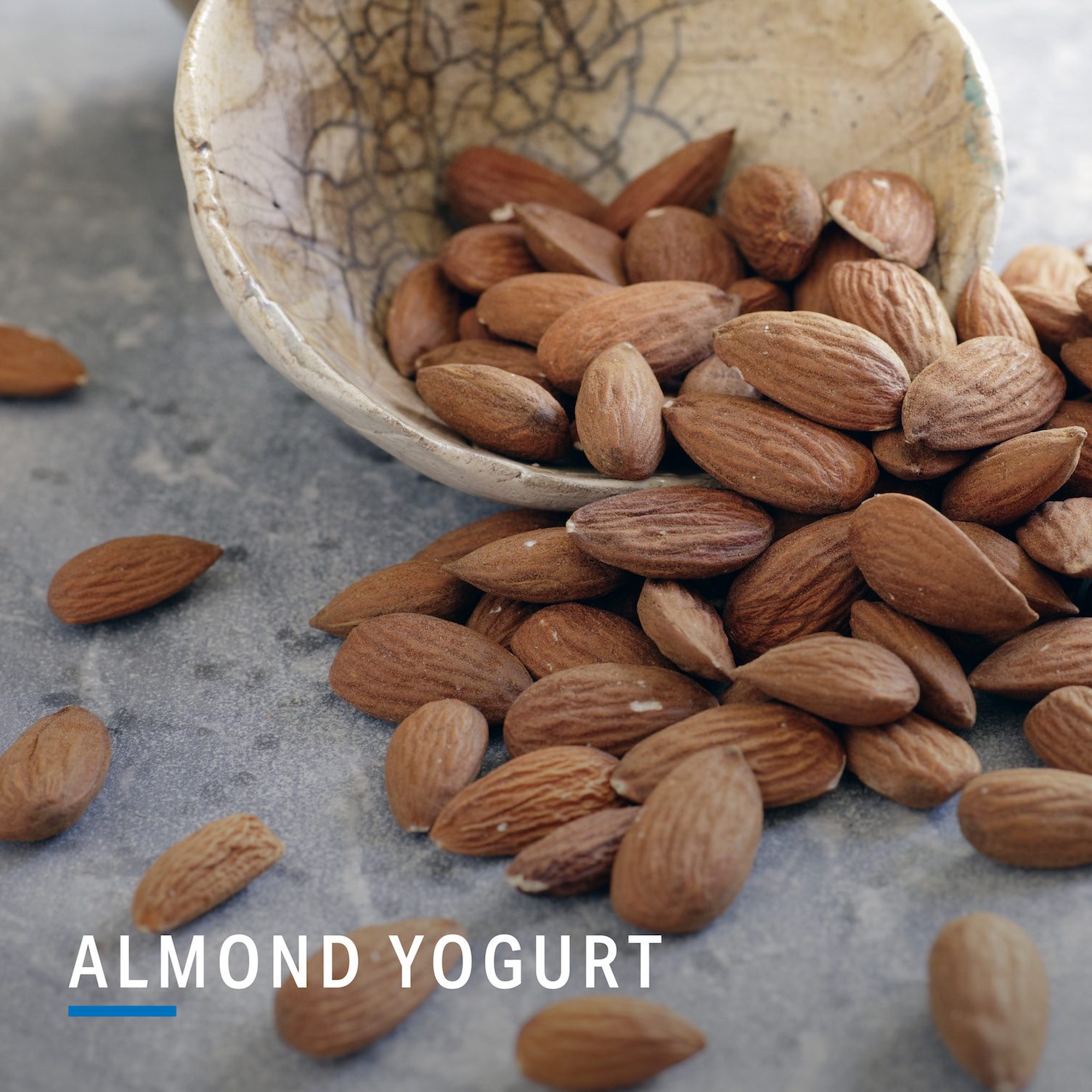
Of all the alt yogurts, this variety has the most intense aftertaste: The tannic bitterness of almond skins haunts every spoonful. While some nut lovers might enjoy the flavor or find the taste “clean,” others will definitely not. If you’re eating yogurt for calcium, read the label: Some brands are calcium fortified. Like its origin food, almond-based yogurt is high in fat, with approximately 11 grams per container. The upside? It also contains a solid amount of protein, coming in at about 5 grams per serving. When it comes to texture, the traditional or “European” style tends to be loose and can verge on watery, depending on the producer. If you prefer it thicker, California-based brand Kite Hill offers Greek-style almond yogurt.
